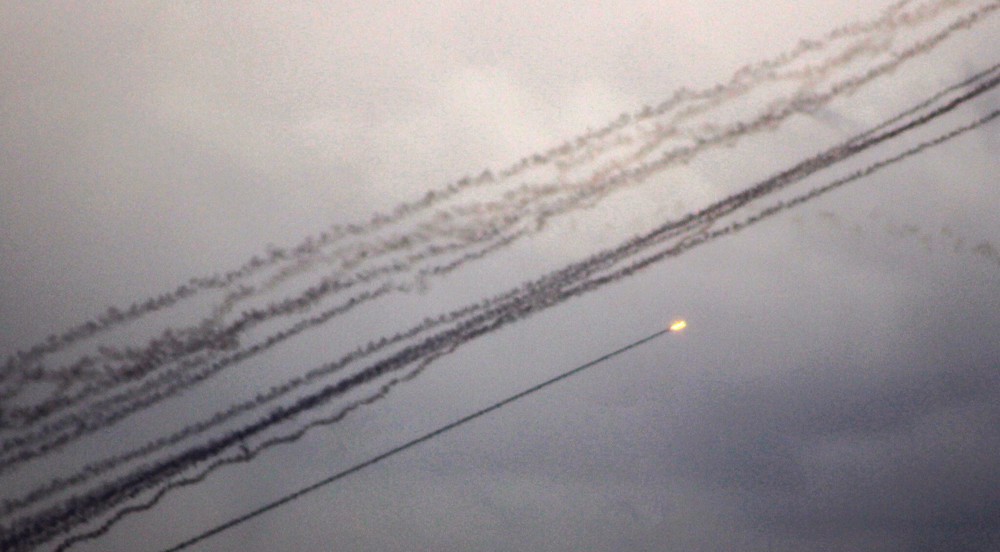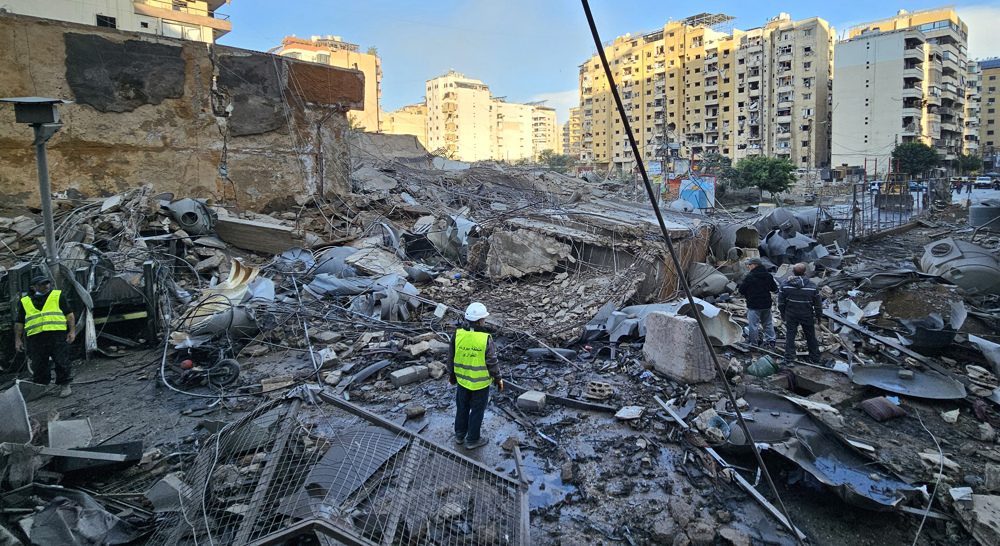Change of government in Lebanon ‘a mistake’: Expert
Lebanon is suffering from a lack of good governance and a change of government in the Arab country would be a mistake since it could not help resolve the crisis there, an expert says. Mass protests have spread across Lebanon over the past few days as a result of the government’s poor handling of the severe economic situation.
Eugene Sensenig, professor of Law and Political Science from the coastal Lebanese port city of Byblos, made the remark during a Friday edition of Press TV’s ‘The Debate’ program while commenting on Lebanon’s recent protests driven by grievances against corruption and economic woes.
Tens of thousands of demonstrators, who were angered at the government proposed tax hikes, took to the streets across Lebanon for a second day of protests on Friday and blamed the ruling elite for the economic crisis.
Lebanese protesters, blocking roads and burning tires, also carried banners and chanted slogans that called for the government to resign.
In a televised address later in the day, Lebanese Prime Minister, Saad Hariri, gave a 72-hour ultimatum for "partners in the government" to exhibit determination in bringing about "real reforms."
“I don’t think that the demonstrators really think that changing the prime minister, or changing certain coalitions in the government, is going to solve anything, people realize that the problems are much more deep-rooted. The biggest problem in this country today is a lack of good governance, is corruption from top to bottom, that corruption is systemic which means that actually corruption is in the system, and honesty and good governance would be a problem if anyone would try to do that,” Sensenig said.
“If we change the government, that would be a mistake because the problem is not Hariri and the problem is not the coalition, the problem is a deep-seated and deep-rooted lack of good governance,” he added.
Sensenig hailed Hezbollah as a “good example of good governance” and called for designating more responsibilities to the Lebanese resistance movement in the government.
“Hezbollah is a good example of good governance; everybody agrees that this organization is well-run, and a few times that they did have ministries which were responsible for important issues like oil, electricity and power, they didn’t work for job. An increased responsibility for Hezbollah in the civilian government of Lebanon would be a good thing,” the professor said.
Michael Springmann, author and political analyst, the other panelist invited to The Debate program, described Lebanon as a country “deeply involved in an economic mess,” as well as a nation beset by corruption and mismanagement.
Mr. Springmann pointed the finger of blame at the Syrian and Palestinian refugees in Lebanon and censured the refugee crisis, which he holds to be a result of American foreign policy in the region, as a “real drain” on the Lebanese economy.
Springmann also proposed ways for Lebanese government authorities to handle the crisis, saying, “Restoring stability without the use of violence is one [way], I think that the sacking of some high-level people as an example to the others about corruption would be a second way of dealing with this, and I think perhaps giving Hezbollah a little bit more authority and a little bit more deference instead of kowtowing to the United States would be a third way."
The protesters are frustrated with rising inflation and living costs as the government struggles to attract revenue amid increasing economic hardships and a decreasing capital flow to Lebanon. They blame the faltering economy on widespread corruption and abuse of privileges among politicians.
Lebanon hosts 1.5 million Syrian refugees, and their presence is often blamed for putting pressure on an already struggling economy.
Unemployment stands at more than 20 percent, according to official figures.
Successive governments have failed to address a waste management crisis or improve the electricity grid, which is plagued by daily power cuts.
Increasing financial pressure on Lebanon comes as US sanctions, allegedly targeting individuals and international organizations that do business with the Hezbollah resistance movement, have had a negative effect on the country’s economy.
Jordan sentences former lawmaker for supporting Palestinian resistance
Basij volunteer forces hold massive drills in southwestern Iran
Israeli war criminals 'not welcome', US city says after ICC ruling
US vetoing of Gaza ceasefire resolution ‘disgraceful’: Iran’s UN envoy
VIDEO | IAEA adopts anti-Iran resolution tabled by E3
VIDEO | Iran's president urges Pope to help end Israel's onslaught in Gaza
Iran's senior legal official: ICC arrest warrant for Netanyahu ‘great victory'
Nov. 21: ‘Axis of Resistance’ operations against Israeli occupation











 This makes it easy to access the Press TV website
This makes it easy to access the Press TV website